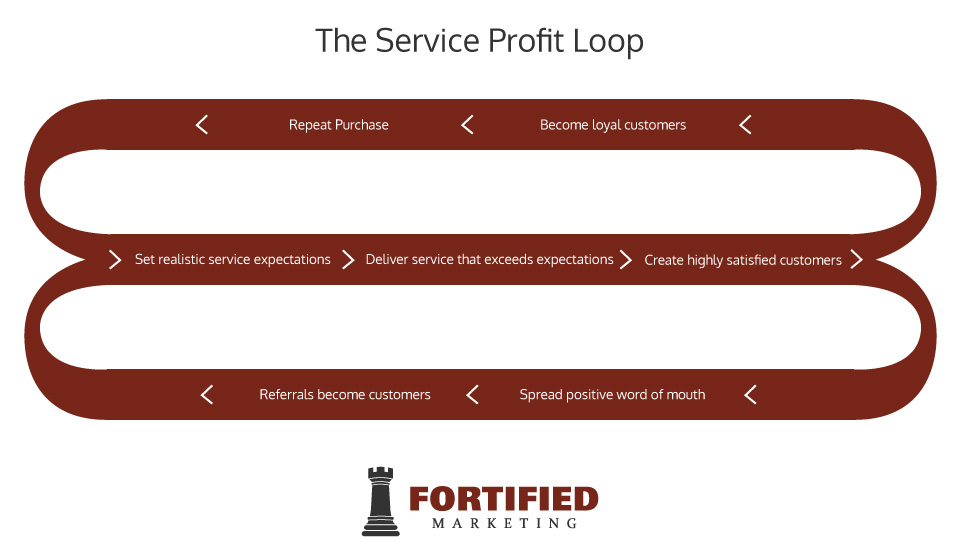What Japan Taught Me About the Right Way to Do Business: Provide exceptional service
“This is about integrity. You must always do your best, regardless of whether you are serving a peasant or the President.”
AUTHOR’S NOTE: If my first name (Taro) didn’t give it away, then you might be shocked to know that I am a quarter Japanese. I don’t look Japanese at all, but I am! As such, I’ve been fortunate enough to travel to Japan on many occasions and for extended periods of time. Although, these trips were more for leisure than business, the businessman in me couldn’t help but pick up on the curious differences between Japanese and Western business culture. They fascinated me and I figured they would fascinate you too.
Let’s get something out of the way right now. You are probably well aware that large Japanese companies, like German and American ones, are business powerhouses. They often steal the spotlight for this reason. They are preached about in University textbooks. After all, Toyota basically invented six-sigma. If you have no idea what heck I just said, then don’t worry! If you came here to learn about bell curves and standard deviations, well you came to the wrong place!
In this article, we’ll discuss some business and marketing principles that are culturally innate with the Japanese and far from common practice in the Western world. I think that if these same practices were applied here in Canada, then businesses will achieve a higher level of brand loyalty and overall success.
What Japan Taught Me About the Right Way to Do Business.
How the Japanese deliver exceptional service: Set realistic expectations
If you have been to Japan, you would have undoubtedly noticed that restaurants have plastic food models of their entire menu on display outside of their entrances (as seen below). Why?

Contrary to what you’re probably thinking, they don’t do it to attract tourists who can’t read Japanese menus. Even the tiniest, locally owned restaurants in the rural areas of Japan have these plastic food models on display. Here, where tourists are seldom seen. Surprisingly, what you see is EXACTLY what you get. From the number of jumbo shrimp shown to the way the plate is dressed; everything you see in these plastic models is precisely what you can expect to be served.
Unfortunately, Canadians are accustomed to deceptive marketing ploys. We passively accept this trickery even though we don’t fully agree with the practices fundamentally. For example, we know that the burger we order won’t half resemble the one in the photo. * Sneeze* (McDonald’s). McDonald’s know this. It set out to educate Canadians during the Our food. Your questions campaign. This video shows why Big Macs looks so much more appealing in the photo than in real life.
So, why don’t the Japanese follow suit and create plastic food models that are more appealing than the actual dishes to entice even more people to eat at their restaurant?
The Japanese have a saying “Atari-mae” (ah-tah-ree-mah-eh), which sums up a very profound notion that is integral to Japanese culture (as most Japanese words do). Atari-mae means it’s the norm, what’s promised, the standard, it’s obvious. In other words, it’s in their nature. In Japan, you must do what is right and what is expected of you. If you promise something, then you must deliver on that promise.
“In Japan, you must do what is right and what is expected of you. If you promise something, then you must deliver that promise. “
These plastic food models embody this very idea. It is a simple example that perfectly demonstrates the way Japanese businesses are transparent in their marketing. They set realistic expectations with their clients and, more often than not, exceed them. This is a very simple and effective tactic that creates satisfied customers (which we will discuss later). But let’s be honest, this isn’t even a business tactic for the Japanese, it is just the way things ought to be done. It is ingrained in them. Atari-mae.
How the Japanese Deliver Exceptional Service: Don’t disappoint.
Everyone has that one service experience that totally ruined it for them. You know, what happened on that flight to Hong Kong, or the incident at that fast food joint, or that time you spent 2 hours speaking to tech support and they couldn’t solve your problem.
No one likes being disappointed by a service experience. Especially when we accord what precious amount of trust we have left to a company by purchasing their services.
Japanese consumers rarely experience the same level of frustration with service as North Americans do. You’re probably thinking, that’s because the Japanese are more polite and more tolerant than we Canadians are of poor service. Au contraire! We may be more vocal about it, but we are much more tolerant of it than they are. The Japanese have much higher standards when it comes to service than we do. This standard pushes Japanese businesses to offer exceptional service, all the time. This standard is not only driven by Japanese consumers, but by Japanese business owners themselves. Why? It’s cultural.
Let’s take a step back. What is bad service? If you think about it, bad service means different things to different people. Service experiences are subjective. More often than not, a poor service evaluation results from your expectations not being met. There are a number of reasons why this happens and if you are interested in that, then I encourage you to read up on the Service Gaps Model.
The converse is true. If you meet your client’s expectations, then they will be satisfied. But the Japanese take it a step further. They outperform the expectations they set to generate customer loyalty.
How the Japanese deliver exceptional service: Exceed expectations
To deliver truly exceptional service, you need to start by being upfront with clients by setting realistic expectations and then you provide service that goes above and beyond what you promised. This is how the Japanese do it and I think that Canadians should follow suit.
How to exceed customer expectations the Japanese way:
- Atari-mae: It all starts with being honest and transparent. Set clear expectations and do what’s expected of you. Recall the plastic food display example? This goes without saying, don’t be fake, don’t intentionally hide things and don’t lie to get someone’s business.
- Demonstrate business etiquette: Be courteous. Be polite. Be respectful. Be kind. Etiquette goes a long way. Internet service technicians in Canada will drill small holes in your wall to pass cables through, but it’s rare that they will clean the trace amounts of sawdust that’s caused by the drilling. In Japan, it’s a no-brainer. You leave the place as clean, if not cleaner than when you first came.
- Strive for perfection: The Japanese are perfectionists. This is reason why their service industry is unparalleled. If you aren’t perfect, you will go out of business – Atari-mae. The stakes are higher in Japan, but if you have this mentality in countries or even industries that have lower service standards, you will undoubtedly outperform your competition.
- Mind the small things: Yes, this may be along the same lines as being perfectionist. But even business owners that are perfectionists sometimes forget to think of the small things if they don’t think it matters all that much. If you have a customer washroom, have you thought about how the toilet paper thickness says a lot about your company? Tiny details like this matter.
- Be team-oriented: The Japanese have a saying: A single arrow is easily broken, but not 10 in a bundle. There is only so much you can do on your own; a cohesive team makes you stronger. And in order for your team to be cohesive, you need to trust and empower them to provide exceptional service. For example, Starbucks baristas do not need to seek approval from management to redo a drink or issue a refund if the customer isn’t entirely satisfied. Starbucks empowers them to turn an otherwise unfavourable situation into a positive one as soon as it arises. This is exceptional service and very Japanese-like. Remember, that your team can only deliver exceptional service if you let them.
- Have a “client is god” mentality: “Okyakusama-wa kamisama desu” translates to “Client is God”. The Japanese believe that Clients are always right. If you don’t agree with this, then you should read never make this marketing mistake. But this saying goes beyond the notion that clients are always right. It is that you will do anything to keep them satisfied. After all, they are the only reason you are in business.
- Perform to the best of your ability, always: This is about integrity. You must always do your best, regardless of whether you are serving a peasant or the President. The great thing is that when you do your best every time, you will deliver high quality and consistent service, which are crucial components of exceeding customer expectations. The Japanese strongly believe in integrity because they stand by the “what goes around comes around” mentality.
- Show your appreciation to customers: In Japan gift giving is common practice. It is not done to bribe people, or with the intention of expecting something in return. It is a sincere act of kindness. You should do this to show appreciation for your customer’s business. After all, okyakusama-wa kamisama desu.
- Treat your clients as you wish to be treated: “Omotenashi” means hospitality, welcoming, inviting, the way one is received. This is one of the most important parts of service. As a client, you want to feel well-taken care of, well treated, respected. Make sure as a service provider that you remember the golden rule: Treat your clients the way you want to be treated.
- Listen to your clients: Japan takes listening very seriously. It is a sign of upmost wisdom and respect. If you don’t listen to clients, you won’t fully understand how you can be of service to them. Also, creating a feedback loop is essential to improving the way you serve them. The first step is to know, the second is to take action. Regardless, you will never know if you don’t ask and listen.
- Focus on what you do best: You might be surprised to find a Mitsubishi made part in a Toyota car. Why doesn’t Toyota make all of their car parts? They have the resources, the know-how, don’t they? Yes. But Toyota’s real strength lies in assembling great cars, not necessarily in manufacturing all of these great car components. So, by outsourcing that to companies who do that really well, they can focus on what they do best. My point? Be aware of what you are truly good at and focus on it. This is the only way you can deliver exceptional service.
If you’ve been to Japan before, you will agree with me on this point: the service standard is much higher there than it is here in Canada. It doesn’t matter if you are Japanese, Canadian, Brazilian, South African; everyone agrees that the Japanese service industry is a cut above. I believe it’s because the rest of the world doesn’t take these service practices (listed above) as seriously as the Japanese do.
Why should you strongly consider applying these best practices yourself? I’ll tell you why.
The Service Profit Loop
The Service Profit Loop, as seen in the diagram below, perfectly demonstrates the direct financial benefit of implementing the above mentioned business practices.

The idea is that if you set clear expectations with customers and you deliver service that exceeds these expectations; your customers will be very satisfied. When customers have a satisfactory service experience, they are likely to tell others about it and recommend your business to them (effectively spreading positive word of mouth). These satisfied customers become loyal ones and provide you with repeat business and a constant revenue stream. On top of that, the ones who were referred to you will become satisfied customers themselves. The cycle repeats.
The result? Your business grows substantially, in an exponential fashion. Keep in mind that even exponential functions start off by growing very slowly, but this growth eventually snowballs.
There are other benefits to providing exceptional service too: Increasing organic brand awareness, establishing a favourable brand market perception, increasing employee satisfaction/retention, becoming immune to competition, etc. Plus, you don’t need to spend nearly as much on advertising to attract new clients when you have referrals coming in.
See how providing exceptional customer service pays off? If it wasn’t clear before, I think it’s pretty clear now.
To recap...
The fact that the service standard in Canada is much lower than that in Japan presents a huge opportunity for companies that are serious about taking their service to the next level. If you can commit to Japan-level service standards, then you will set your company apart here in Canada.
To summarize, you will be profitable by simply offering exceptional service. How do you offer exceptional service? By doing as the Japanese do:
- Set clear expectations
- Provide service that exceeds the expectations you set by:
- Being honest & transparent
- Demonstrating business etiquette
- Striving for perfection
- Carefully considering small details
- Being team-oriented
- Treating customers as kings
- Performing to the best of your abilities
- Showing your customers appreciation
- Treating customers as you would want to be treated
- Listening to your clients
- Focusing on what you do best
Be in the know
(without having to remember to be in the know).
Our latest blogs go well with espresso and a warm croissant! Get them sent conveniently to your inbox when they are hot off the press. Subscribe to get Smarketing.

Like this post? Then you'll enjoy these.
Important Marketing Activities for Companies in the Tourism Industry
As the search for information occurs almost exclusively within the digital space nowadays, companies that operate in the tourism industry should have a marketing strategy that is digitally focused. Here are a few ideas that should be considered: search engine optimization (SEO), website translation, engaging online content, quality & quantity of reviews, customer retention.
Working with Millennials: Why your business should hire them.
Having a Millennial on your team opens up an opportunity for innovation and creativity. Not only do Millennials multitask a lot better than previous generations, they often think outside of the box and are extremely tech-savvy. Forward-looking employers are embracing the next generation. They are working with Millennials, leveraging their unique characteristics to help move their business in the right direction. There are a number great things about working with Millennials. Understanding these qualities and knowing how to use them can greatly benefit your business.
Convenient Out-of-Office Meeting Spots in Ottawa
Your office can be wherever you have Internet access and feel productive enough to work. These 5 Ottawa meeting spots promise productivity and good coffee.
Meet the author.

Taro Abarbanel-Uemura
Marketing Strategist
Meet Fortified Marketing's founder and lead marketing consultant. Taro loves reading fascinating articles on various marketing-related subjects, just as much as he enjoys writing about them. When he isn’t savouring a latte while working on his newest blog post, he can be found at a coffee shop in Ottawa's Little Italy, or marathoning shows and documentaries on Netflix.


